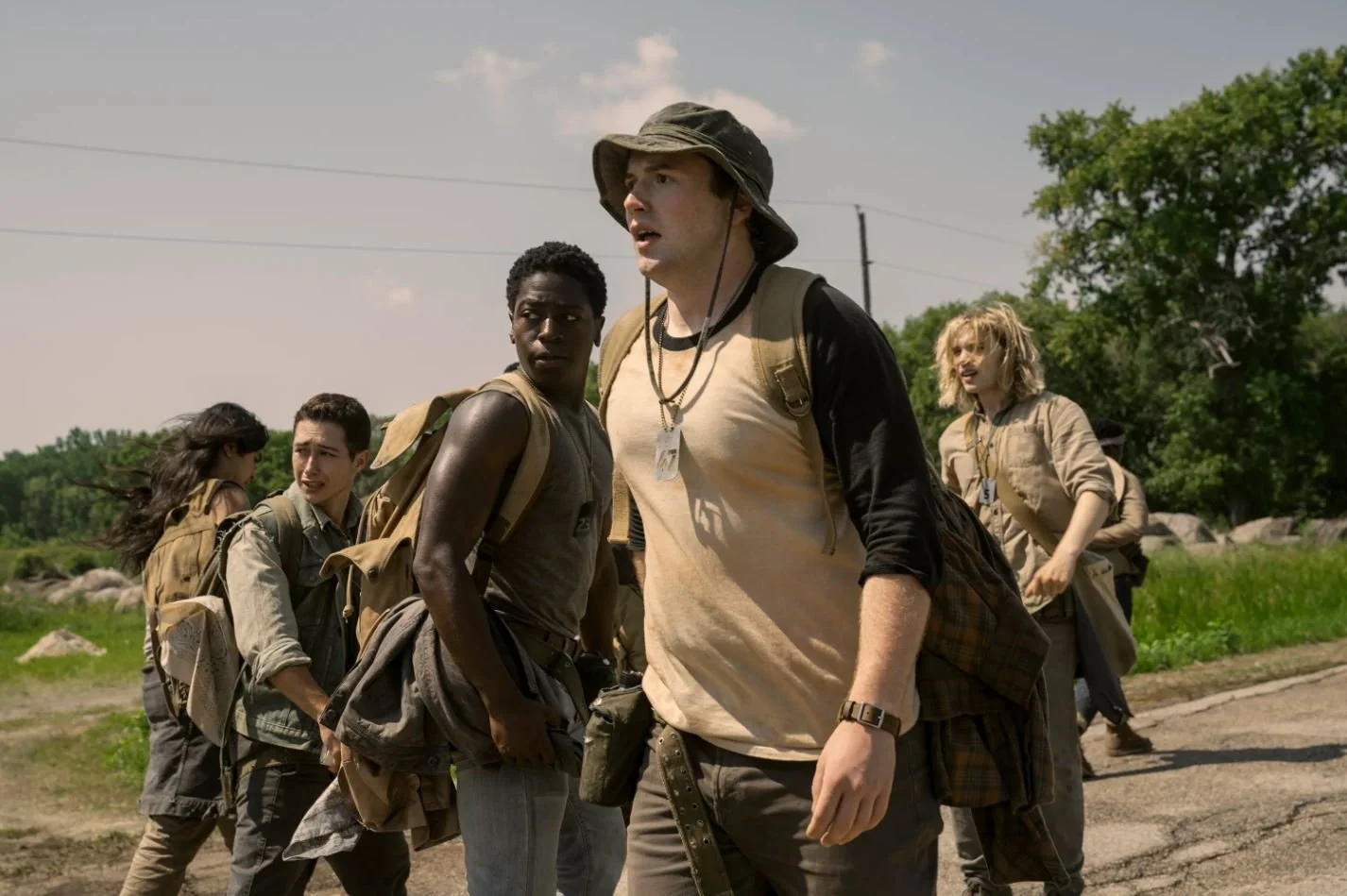‘The Long Walk’ Film Review
by William Lindus
Story time: In 1966, a young Stephen King would write his first novel, THE LONG WALK, during his freshman year of college. This novel would go unpublished, and it might have stayed that way had it not been for Stephen King’s rise to popularity as a horror writer in the mid 70s. To avoid oversaturating the ‘King’ brand on the market, he began releasing a series of novels under the pseudonym Richard Bachman. One of these ended up being THE LONG WALK, published 13 years after it was written.
Why is this important? Adding context to the background of the novel - a story about young men facing down their mortality from the lens of an author who was around 19 years of age when he wrote it - makes the novel feel more personal and grounded. And, in context of the film adaptation by director JT Mollner (who stunned last year with his creatively edited thriller STRANGE DARLING), the fact that the themes feel even more prescient in 2025 speaks volumes about the enduring legacy of THE LONG WALK.
Set in an alternate dystopian timeline of an unspecified year (though aesthetics lean towards 1970s or beyond) where the United States has fallen into immense poverty following an unspecified war, teenage boys volunteer for the annual Long Walk, which has them walking above 3 miles per hour, receiving a warning whenever they drop below that rate. Three warnings and the boys get their ‘ticket punched’ via a gunshot to the head. Whichever boy survives the longest gets one wish granted, including wealth, fame, or anything else they may potentially want.
Mollner’s film adaptation is unflinching in all of the best ways. With horror films, the audience has been trained over the years to root for the creative kills, to cheer when the unlikable character gets their comeuppance, to relish any Battle Royale elimination as we get closer and closer to our main character grabbing the win. But THE LONG WALK never forgets that these are teenage boys who simply want out of the poverty that has plagued their families, and each death is brutal and heart-wrenching. As a young man writing about the limited options of poor young men during the height of the Vietnam War, King captured this frustrating futility on page; with college tuition being the primary reason people join the military in 2025, these themes are still viable today.
We don’t want to think of ourselves as complicit; we want to look away. We want to flinch. But the camera doesn’t allow us to. We have to watch these deaths. We ARE complicit, just as we are complicit when young men fight and die on foreign soil for the interests of the wealthy and politicians back home. Just as we are complicit when we treat military occupation in American cities as an ‘us vs them’ problem and see the forcible deportation of refugees who are in the country through legal asylum means as entertainment or meme-worthy.
As I mentioned, the themes worked when written, and the themes work today.
These themes do nothing without a cast capable of supporting them, and the cast of THE LONG WALK is an absolute rogue’s gallery of young talent who have either recently or are bound to soon break into the mainstream. The lead performances are carried by our point of view character, Ray Garrity (Cooper Hoffman) and a friend he makes on the walk, Peter McVries (David Jonsson), who share opposing views on the walk and on life. Ray carries with him a grudge, a mission - he is deadset on seeing the end of the walk to meet his goals. Peter, on the other hand, sees the walk as a series of moments. You enjoy the moment, you survive the moment, then you move on to the next. As young men staring down the barrel of their own mortality, these two different approaches become the philosophical core of the film. At what point do our goals stop us from enjoying our lives in the ‘now?’ Can we truly live with vengeance as a motivator, or do connections with the people in our lives matter more?
Hoffman and Jonsson are revelatory in these roles. Hoffman carries a dogged determination to his performance, and becomes the centerpiece through which the other characters orbit. If Hoffman is the engine that drives the story, Jonsson provides the empathy that keeps us, too, in these characters’ orbit. The rest of the young cast - Garret Wareing, Tut Nyuot, Charlie Plummer, Ben Wang, Joshua Odjick, and Roman Griffin Davis (amongst others) - all carry different motivations, different levels of youthful bravado and genuine fear when facing their own peril. All of this done while also providing a set of physical performances that showcase more injury, exhaustion, and fear as the walk continues.
Standing astride a Jeep, surrounded by the soldiers who also serve as executioners, is Mark Hamill as The Major, a gruff symbol of authoritarian nationalism who celebrates the boys as they embark on the Long Walk for ‘the good of their country,’ and who reminds them constantly how much ‘sack’ they are demonstrating through their bravery. It’s no surprise that Hamill is amazing in this role; at this stage in his career, this is par for the course for Hamill, but still welcome.
It should come as no surprise that there are several changes from the novel to the film adaptation; characters are merged and motivations are shifted to make a more streamlined story, scenes are condensed for runtime, the usual. But it is in the film’s third act where some more dramatic changes occur; I’ll avoid spoilers here, but suffice to say, these changes might be alarming at first to book purists, but they make sense in context of the film and the version of the story it is telling. Sometimes, changes that shouldn’t work, do.
I’ve buried the lede; THE LONG WALK is one of the strongest film offerings of 2025 (so far), and a film that weaves brutality and compassion in such a way that you can’t help but shed a tear or two (or three, or four) by the time the credits roll.
I’ll close with a scene that I think captures what makes THE LONG WALK so memorable. At one point, Ray and Peter pass by a family watching the walkers. Ray immediately calls them pigs, and yells at them for having the gall to watch the suffering of the boys on their death march. Peter corrects him, and says they are more like sheep - the family is victim to a system that has trained them to believe that everything they are seeing is okay. This same system convinced the boys to volunteer for the walk as a means to ‘save their families.’ And this same system allows us, in 2025, to turn a blind eye to the growing rise of authoritarianism and fascism in the world around us. Perhaps we are more than our differences. Perhaps we are sheep, in this example. And perhaps we have a duty to figure out a way to break this cycle, not just for ourselves, but for the next generation of youth who will one day have to choose between their lives and the livelihoods of their own families.
Perhaps, we’re all on this long walk together, and need to recognize the moments and the connections with the people around us today in an effort to make a better tomorrow.
4.5 out of 5 Bear Paws


